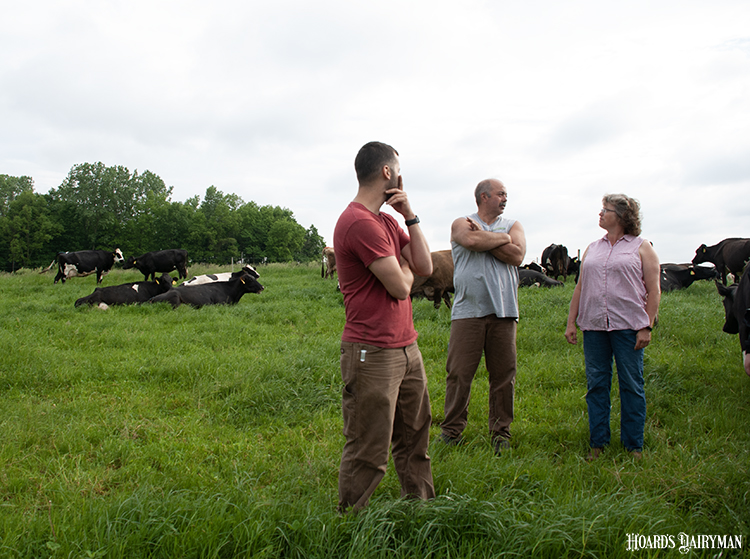
When retaining employees is as important as it is in the current labor market, keeping your team engaged in their work and their workplace makes all the difference. For Pete Posnett of Willow Behrer Farms, engagement starts with trust.
In the workplace, trust is built on how often employees interact with their leader, how competent they view the leader to be, and if they believe the leader “walks the walk” of what they say. Posnett simply summarized it as being a good person. During the Pennsylvania Dairy Summit, he discussed how the foundation of engaging his team stems from getting to know them and building open relationships on both a personal and professional level. Often, the top key for people to stay at their job is feeling cared for at work.
It's important to have someone on the farm leadership team who has the time to develop those relationships, Posnett said. As herd manager at Willow Behrer, that is him. Even if you’re not a relationship person, he recommended starting by taking a moment to speak with every employee each week. Posnett is able to check in with each of their employees every day.
“We try to make it a practice, but it’s great when it becomes natural,” he said, emphasizing that knowing your people and what is going on with them is an ideal way to build trust. That also goes for service people and contractors who may not be on the farm every day but still have an effect on the business. Although those conversations take time, they will also help you head off problems before they develop.
When employees trust their leaders, the other factors of engagement can thrive. Training is necessary for workers to feel valued and purposeful at their job, and by knowing your people, you can build materials that will best help them learn. Posnett noted that everyone learns differently; photos and diagrams work well for some people while others may need a hands-on demonstration.
Another way to show you care about them is to bring in translators when useful. You can also demonstrate your trust in your team by having an employee present the training.
Feedback is necessary to engage employees because it provides them a stake in the operation. By providing quality feedback, you are helping them understand how their work is connected to and necessary for the success of the business. Posnett noted that their onboarding process includes feedback conversations at the 4 month, 6 month, and 1 year marks. For each employee, he keeps a file of the feedback he’s given them over the course of their employment.
Asking for feedback is also important. At the team’s monthly meetings, which nearly everyone attends, they review the farm’s goals and metrics in various areas. Discussing ways to improve the operation as a group builds trust and buy-in, Posnett described.
Employee engagement takes all of these forms and more, such as rewarding great performance with bonuses and celebrations. But they all have their basis in building trusting relationships that allow both parties to feel like a valued part of the team. That is what keeps people at their jobs.








